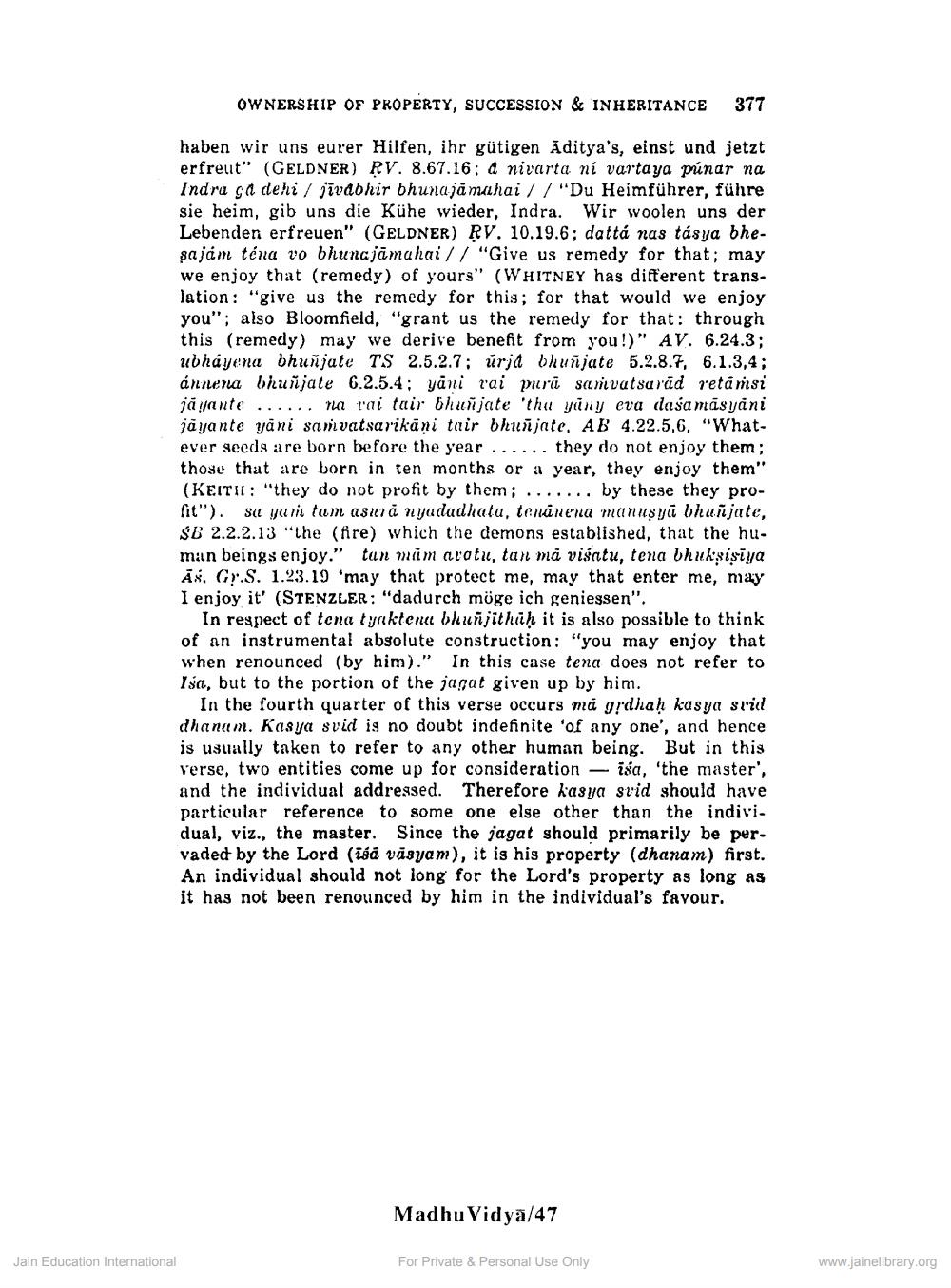________________
OWNERSHIP OF PROPERTY, SUCCESSION & INHERITANCE
377
haben wir uns eurer Hilfen, ihr gütigen Aditya's, einst und jetzt erfreut" (GELDNER) RV. 8.67.16; d nivarta ní vartaya prinar na Indra ca dehi / jīvdbhir bhunajamahai / / "Du Heimführer, führe sie heim, gib uns die Kühe wieder, Indra. Wir woolen uns der Lebenden erfreuen" (GELDNER) RV. 10.19.6; dattá nas tásya bhesajám téna vo bhuncjāmahai/ / "Give us remedy for that; may we enjoy that (remedy) of yours" (WHITNEY has different translation: "give us the remedy for this; for that would we enjoy you"; also Bloomfield, "grant us the remedy for that: through this (remedy) may we derive benefit from you!)" AV. 6.24.3; ubhayena bhunjate TS 2.5.2.7; úrja bhunjate 5.2.8.7, 6.1.3,4; ánnera bruñjate 6.2.5.4; yani tai puuri samvatsarād retamsi jayante ...... na tai tair bhijate 'thu yiyeva dasa másváni jāyante yani samvatsarikani tair bhurjate, AB 4.22.5,6. "Whatever seeds are born before the year ...... they do not enjoy them; those that are born in ten months or a year, they enjoy them" (KEITII: "they do not profit by them; . . . . ... by these they profit"). Su yarı tam asia nyadadhatu, tenanena manusyū bhunjate, $B 2.2.2.13 "the (fire) which the demons established, that the hu. man beings enjoy." tan mim aratu, tan mà visatu, tena bhuksisiya Ār. G?.s. 1.23.19 'may that protect me, may that enter me, may I enjoy it' (STENZLER: "dadurch möge ich geniessen".
In respect of tena tynktene blurjithah it is also possible to think of an instrumental absolute construction: "you may enjoy that when renounced (by him)." In this case tena does not refer to Isa, but to the portion of the jagat given up by him.
In the fourth quarter of this verse occurs má grdhaḥ kasya siid dhanam. Kasya svid is no doubt indefinite 'of any one', and hence is usually taken to refer to any other human being. But in this verse, two entities come up for consideration - isa, 'the master', and the individual addressed. Therefore kasya svid should have particular reference to some one else other than the indivi. dual, viz., the master. Since the jagat should primarily be pervaded by the Lord (isä väsyam), it is his property (dhanam) first. An individual should not long for the Lord's property as long as it has not been renounced by him in the individual's favour.
Madhu Vidya/47
Jain Education International
For Private & Personal Use Only
www.jainelibrary.org




